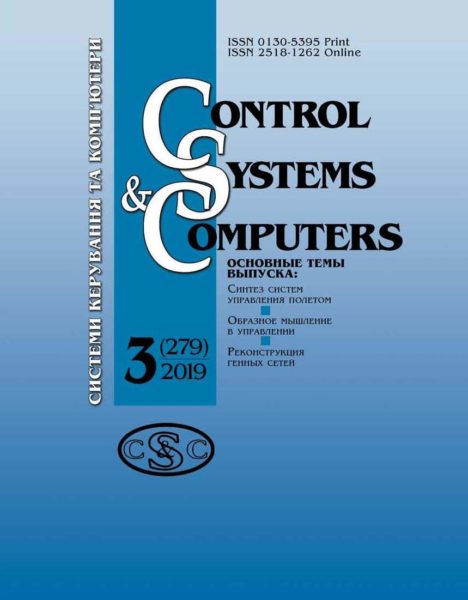Control Systems and Computers, N3, 2024, Article 7
https://doi.org/10.15407/csc.2024.03.068
Control Systems and Computers, 2024, Issue 3 (307), pp. 68-76.
UDC 004.942
A.M. SHVYNDIA, Student, Taras Shevchenko National University of Kyiv, Bohdan Hawrylyshyn str. 24, Kyiv, Ukraine, 04116, ORCID: https://orcid.org/0009-0002-3319-4502, andrey.shvyndya22@gmail.com
A.Yu. NIKOLAIENKO, Ph.D., Assistant of the Department of Software Systems and Technologies, Taras Shevchenko National University of Kyiv, Bohdan Hawrylyshyn str. 24, Kyiv, Ukraine, 04116, ORCID: https://orcid.org/0000-0002-2402-2947, n_nastja@knu.ua
PERSONALIZATION OF USER EXPERIENCE IN LANGUAGE LEARNING THROUGH LARGE LANGUAGE MODEL ASSISTANTS
Language learning benefits from a comprehensive approach, but traditional software often lacks personalization. This study analyzes prompt engineering principles to implement a test generation algorithm using Large Language Models (LLMs). The approach involved examining these principles, exploring related strategies, and creating a unified prompt structure. A test generation script was developed and integrated into an API for an interactive language learning platform. While LLM integration offers highly effective, personalized learning experiences, issues like response time and content diversity need addressing. Future advancements in LLM technology are expected to resolve these limitations.
Download full text! (On English)
Keywords: Personalization, Language Learning, Artificial Intelligence, Large Language Models, Prompt Engineering, OpenAI, AI assistants.
- Baczkowska, A. (2021). “An Overview of Popular Website Platforms and Mobile Apps for Language Learning.” Forum Filologiczne Ateneum, 1(9), pp. 9-35, https://doi.org/10.36575/2353-2912/1(9)2021.009.
https://doi.org/10.36575/2353-2912/1(9)2021.009 - Arce, N.H., & Valdivia, A.C. (2020). “Adapting competitiveness and gamification to a digital platform for foreign language learning”. International Journal of Emerging Technologies in Learning (iJET), 15.20, pp. 194-209.
https://doi.org/10.3991/ijet.v15i20.16135 - Kukulska-Hulme, A. (2016). Personalization of language learning through mobile technologies. Cambridge University Press, Cambridge, UK.
- Chen, X., Zou, D., Xie, H., & Cheng, G. (2021). “Twenty years of personalized language learning”. Educational Technology & Society, 24(1), pp. 205-222.
- Baskara, R. (2023). “Exploring the implications of ChatGPT for language learning in higher education”. Indonesian Journal of English Language Teaching and Applied Linguistics, 7(2), pp. 343-358.
- Hatmanto, E. D., & Sari, M. I. (2023). “Aligning Theory and Practice: Leveraging Chat GPT for Effective English Language Teaching and Learning”. In E3S Web of Conferences, Vol. 440, p. 05001.
https://doi.org/10.1051/e3sconf/202344005001 - Shaikh, S., Yayilgan, S.Y., Klimova, B., Pikhart, M. (2023). “Assessing the Usability of ChatGPT for Formal English Language Learning”. Eur. J. Investig. Health Psychol. Educ., 13, pp. 1937-1960.
https://doi.org/10.3390/ejihpe13090140 - Detailed guide to Prompt Engineering from Matt Crabtree. [online]. Available at: <https://www.datacamp.com/blog/what-is-prompt-engineering-the-future-of-ai-communication> [Accessed 11 May 2024].
- White, J., Fu, Q., Hays, S., Sandborn, M., Olea, C., Gilbert, H., … & Schmidt, D.C. (2023). A prompt pattern catalog to enhance prompt engineering with chatgpt. arXiv preprint arXiv:2302.11382. Cornell University, February 2023.
- Ekin, S. (2023). “Prompt engineering for ChatGPT: a quick guide to techniques, tips, and best practices”. Authorea Preprints. May 04.
https://doi.org/10.36227/techrxiv.22683919.v2 - Bozkurt, A., & Sharma, R. C. (2023). “Generative AI and Prompt Engineering: The Art of Whispering to Let the Genie Out of the Algorithmic World”. Asian Journal of Distance Education, 18(2), pp. I-VII.
Received 04.06.2024



